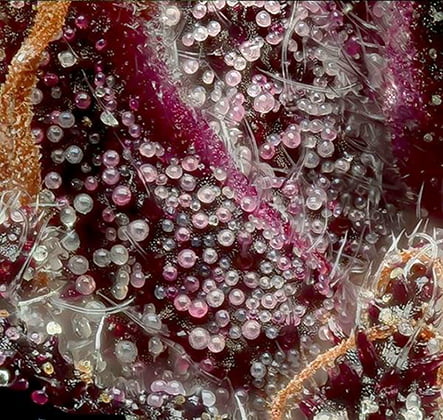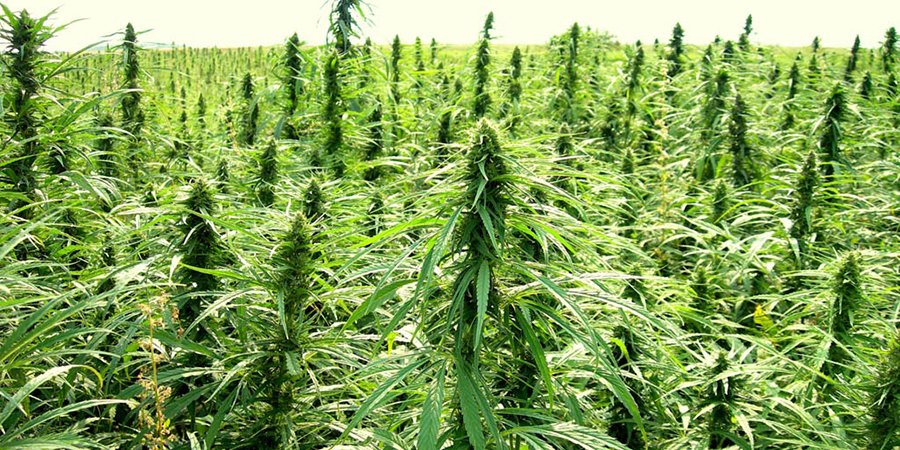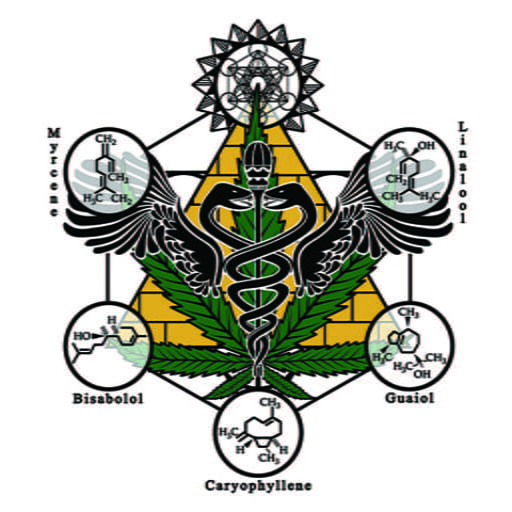Introduction
The global community is suffering from an extinction crisis, with data from the American Museum of Natural History indicating that about 100 to 10,000 species, ranging from microscopic organisms to large plants and animals, go extinct annually.
The hemp plant serves as a good habitat for numerous species, providing potential support for their populations. Every aspect of the plant plays a key role, from developing symbiotic relationships with bacteria in their roots to promoting the populations of butterflies, other insects, birds, and beyond. Apart from its significant application in producing cannabinoid and medicine-rich plants, hemp farming can also fulfill important roles in addressing major challenges faced by humanity, ranging from healthcare to pollution reduction and fighting global warming.
How can hemp farming promote biodiversity?
Hemp farming can promote biodiversity in several ways:
- Reduced Pesticide Use
Hemp boasts natural resistance to numerous pests and diseases, which diminishes the necessity for chemical pesticides. Through the avoidance or reduction of pesticide usage, hemp farming contributes to the preservation of beneficial insects, birds, and other wildlife populations that would otherwise suffer from pesticide exposure. Pesticides rank among the most hazardous pollutants, posing threats to a wide array of organisms including insects, mussels, fish, amphibians, birds, and even mammals, including humans. Information from the Endangered Species Coalition indicates that approximately 10 species of plants and animals fall victim to pesticide poisoning each year. Among these species are the Salado salamander, Streaked horned lark, Chinook salmon, Crotch’s bumble bee, California red-legged frog, San Joaquin kit fox, Northern spotted owl, Indiana bat, Pink mucket pearly mussel, and the Monarch butterfly.
“It is said that the human race is responsible for the death of roughly 6 Billion sentient beings on the planet each day. This is simply not sustainable for any length of time and must be addressed. Hemp is not only capable of reducing the burden we place on the earth but through remediation it is even capable of repairing much of the damage we have caused. I don’t know if hemp will save the world but I believe it is the only thing that can.”
(Jeremy Klettke)
- Soil Health
The extensive root system of hemp plants serves as a natural soil aerator, effectively loosening compacted soil and enhancing its overall structure and fertility. This process, known as bioturbation, creates channels for air, water, and nutrients to permeate the soil, promoting optimal conditions for plant growth. Moreover, the improved soil structure encourages the proliferation of beneficial soil organisms, such as earthworms and microorganisms, which contribute to soil biodiversity. These organisms play essential roles in nutrient cycling, organic matter decomposition, and disease suppression, further enhancing soil health. By fostering a diverse ecosystem within the soil, hemp cultivation supports sustainable agriculture practices and contributes to the preservation of soil fertility over the long term.
Integrating hemp into crop rotation systems offers several benefits, including breaking pest and disease cycles and reducing soil erosion. By alternating hemp cultivation with other crops, soil health is improved, and the depletion of specific nutrients is prevented. This practice supports a more diverse range of plant species.

- Habitat Creation
Hemp fields offer more than just a cash crop; they act as vibrant ecosystems supporting diverse wildlife populations. With their dense foliage and tall stalks, hemp plants provide ideal habitats for several creatures, from birds to insects to small mammals. The dense canopy of leaves offers shelter from predators and adverse weather conditions, while the tall stalks provide excellent nesting sites for birds and safe hiding places for small mammals. Additionally, hemp fields attract a variety of insects, including pollinators like bees and butterflies, which contribute to the overall health of the ecosystem. By serving as havens for wildlife, hemp fields contribute to the preservation of biodiversity and the balance of local ecosystems. Thus, hemp cultivation not only benefits farmers but also fosters thriving ecosystems rich in biodiversity.
- Pollinator Support
Hemp produces pollen and nectar, making it highly appealing to bees and other pollinators. By offering supplementary forage sources, hemp fields play a key role in supporting pollinator populations, including both honeybees and native bee species. These pollinators are essential for the reproduction of numerous flowering plants, thus contributing to the overall health and biodiversity of ecosystems.

- Water Conservation
Compared to numerous other crops, hemp cultivation typically requires significantly less water. This lower water demand is not only beneficial for farmers but also plays a crucial role in conserving precious water resources, which are essential for maintaining the health of aquatic ecosystems in rivers, lakes, and wetlands. By consuming less water, hemp farming helps mitigate the strain on freshwater sources, reducing the need for irrigation and preserving water for other uses. This conservation effort directly contributes to the sustenance of aquatic biodiversity by ensuring adequate water levels and quality in natural habitats. Furthermore, by minimizing water consumption in agriculture, hemp cultivation supports the overall balance of ecosystems, benefiting not only aquatic organisms but also the diverse array of plant and animal species that rely on healthy waterways for their survival. Therefore, the water-efficient nature of hemp farming serves as a crucial component in efforts to protect and sustain aquatic biodiversity.
Conclusion
Hemp farming isn’t just a trend but a biodiversity game-changer. From reducing pesticides to supporting pollinators, hemp does the magic. With its carbon-trapping roots and water-wise ways, hemp is the hero our planet needs.
